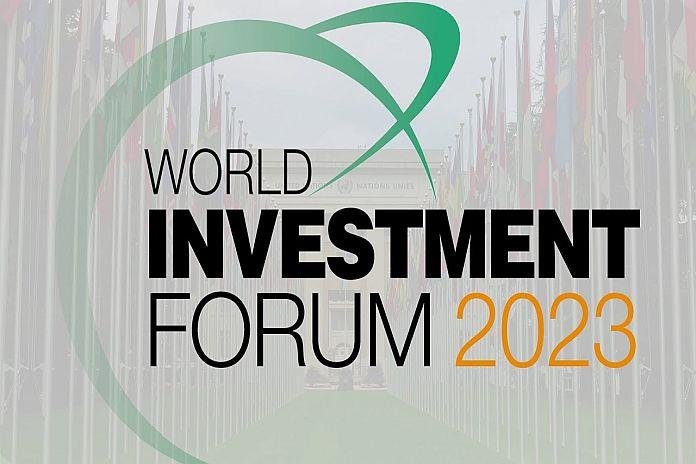United Nations Conference on Trade and Development made a strong case for increased efforts to focus net-zero funding toward poor nations during 8th World Investment Forum.

The United Nations Conference on Trade and Development (UNCTAD) made a strong case for increased efforts to focus net-zero funding toward poor nations during the 8th World Investment Forum.
This urgent plea highlights the need for financial injection in these countries, where significant development opportunities are still unexplored.
Rebeca Grynspan, Secretary-General of UNCTAD, emphasized that the energy transition, a pivotal component in combating climate change, demands substantial investment. She pointed out, “The investment needs are much higher in developing than in developed economies, relative to their existing asset bases.”
To adhere to the imperative of limiting global warming to 1.5° Celsius above pre-industrial levels, the world requires an investment equivalent to one and a half times today’s global GDP by 2050.
The ongoing 8th World Investment Forum, hosted in Abu Dhabi from 16 to 20 October, serves as a confluence for governments, global institutions, investors, stock exchanges, investment promotion agencies, and sovereign wealth funds to deliberate on the challenges pertaining to financing global sustainable development and steering the energy transition.
Foreign Direct Investment (FDI) is poised to play a pivotal role in this transition, particularly within the realm of renewable energy. International project finance constitutes 55% of the total project finance values, surging to over 75% in the least developed countries (LDCs). Nonetheless, the exorbitant cost of capital, particularly in nations grappling with debt burdens, presents a formidable obstacle.
Africa, encumbered by interest rates four to eight times higher than those in developed countries, grapples with the task of attracting essential investments.
Despite accounting for merely 3.5% of global FDI, and even less in renewable energy investments, 31 developing countries, including 11 LDCs, have failed to register a single utility-scale power-plant-sized international investment project in the energy transition sector since the inception of the Paris Agreement in 2015.
Small island developing states are disproportionately affected, drawing in a meager 0.6% of global FDI in 2022, predominantly concentrated in a handful of nations. Structural barriers, encompassing logistical complexities, modest market size, elevated risk ratings, and susceptibility to natural calamities, contribute to this glaring disparity.
UNCTAD underscores the pivotal role of international investors in providing more accessible finance to alleviate capital costs for projects. On average, the involvement of international investors reduces the spread on debt finance by 8% in developing nations. Collaborative efforts with multilateral development banks and government stakes in public-private partnerships can further curtail the spread by an impressive 40%.
UNCTAD stresses the urgency for synchronized efforts among parliamentarians, policymakers, and business leaders to adopt a nuanced and cooperative approach in tackling the challenges posed by the sweeping global economic transformation necessitated by the shift to a net-zero economy.
Key players, including the UN Framework Convention on Climate Change and the International Renewable Energy Agency, participated in the COP28 Global Dialogue and Investment event, shedding light on the current inadequacy in climate finance investments.
Experts from investment promotion agencies, investment funds, and sustainable investment specialists contributed to the broader climate finance and investment track of the World Investment Forum, generating insights and policy recommendations for discussions at COP28.
UNCTAD remains steadfast in its commitment to aiding investors and financial markets in integrating sustainability into their investments, enhancing disclosure and transparency, and championing sustainable investment, particularly in developing economies.